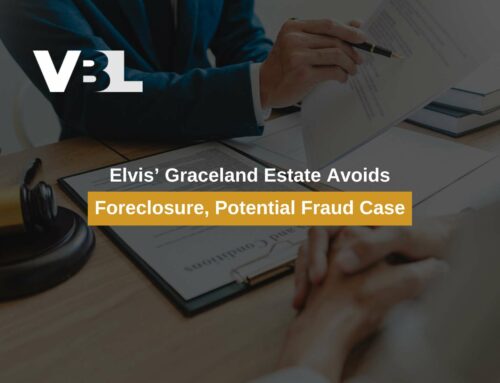How Identity Theft Impacts Bankruptcy In Las Vegas, Nevada
The top reasons that people file for bankruptcy in the United States include medical debt, unemployment, divorce, and poor spending habits. While less common, an unexpected reason that people file for bankruptcy is identity theft. Identity thieves often run up credit card debts in other people’s names, which may or may not be resolved by disputing the charges with the credit card company. Sometimes, a person will even steal another person’s identity to file for bankruptcy in their name. Identity theft is always a serious matter, and should be addressed as quickly as possible, especially if a bankruptcy filing is involved. For your free consultation with an experienced Las Vegas bankruptcy lawyer, call 702-370-0155.

Fraud Alerts To Prevent Identity Theft
There are many reas++++ons it’s beneficial to regularly monitor your credit report. One of them is to make sure that no one has stolen your identity and incurred fraudulent charges in your name. You can also opt in for fraud alerts on your credit report so that you can be notified if any suspicious charges appear. It can also create alerts for when someone creates a new account in your name or requests a new card for an existing account in your name. There are three types of fraud alerts:
- Initial fraud alert: This type of alert should be used when you have been the victim of identity theft or when you suspect that you will soon be the victim of identity theft- for example, if you click a suspicious link and enter information but immediately realize your mistake, you can put out an initial fraud alert to prevent the scammer from stealing your identity. All requests that would impact your credit, like opening a new account, need to be verified by you when an initial fraud alert is in place. An initial fraud alert lasts for one year. An initial fraud alert entitles you to one free copy of your credit report.
- Extended alert: An extended alert is for someone who has already been the victim of identity theft. It operates similarly to the other types of fraud alerts. Like an initial fraud alert, potential creditors must verify through your chosen contact method before issuing any new charges or lines of credit. However, an extended alert lasts for seven years. An extended alert entitles you to two free copies of your credit report and a five-year removal from credit reporting companies’ marketing lists.
- Active duty alert: This type of alert is meant for members of our armed forces. Because of how difficult it can be to contact someone who is deployed, the user can select a personal representative to address verification concerns or select for credit companies to use reasonable measures to verify the user’s identity. An active duty alert can last up to 12 months, but the user can select a shorter time frame if their deployment won’t last that long.
What to Do If You Discover Identity Theft On Your Account
One of the first things you should do if you discover that you’ve been the victim of identity theft is to go to IdentityTheft.gov. This is a website backed by the federal government meant to assist identity theft victims. You can use this website to report the identity theft and receive a recovery plan. Follow these steps to the best of your ability to regain your footing after being the victim of identity theft. For more questions about your options, including the possibility of declaring bankruptcy, you can contact our firm for your free consultation at 702-370-0155.
If fraudulent charges are already appearing on your account, you should call these companies to let them know that you have been the victim of identity theft. You can contact their fraud departments ask them to close or freeze your accounts. You should also change your login information for important financial account. You can request one of the credit alerts described above. Next, you can file a report with the FTC regarding your identity theft. The FTC will issue you a report, which can be taken to your local police station to file a police report. You should also provide the police with a government-issued ID, proof of your address such as a lease or utility bills, and proof of identity theft. Keep your copy of the police report, as it will be useful during several steps of the process of recovering from identity theft.
It will be inconvenient, but you should contact each company where you have incurred a fraudulent charge to report the fraud and provide copies of the FTC report and police report. You should also have each company’s fraud department issue you a letter confirming that you aren’t liable for the account and that it has been removed from your credit report.
What to Do if Someone Fraudulently Filed For Bankruptcy In Your Name
While a rarer form of identity theft, it isn’t unheard of for a scammer to fraudulently file for bankruptcy using someone else’s identity. When this is done, it is usually so that the scammer can take advantage of the automatic stay and stop a creditor collection effort. The identity theft will fail to appear at the 341 Meeting of Creditors which will result in the case being dismissed, but the filing will still show up on the victim’s credit report. Less commonly, illegal immigrants may assume someone else’s identity while getting established in the United States and file for bankruptcy to discharge any debts they have incurred under that false identity.
If the identity theft victim discovers the fraudulent bankruptcy filing while the case is still active, they should request that the court dismiss the bankruptcy case. If the case has already been discharged, the identity theft victim can ask the trustee assigned to the case to expunge or void the case. The victim may also want to have their social security number updated in the bankruptcy record. This can all be used to solidify that the identity theft victim never filed for bankruptcy and that the filing was fraudulent if the victim encounters credit issues in the future. If you have more questions about a fraudulent bankruptcy filed in your name in Las Vegas, Nevada, call 702-370-0155 for your free consultation with the Law Office of Erik Severino.
Considering Declaring Bankruptcy In Las Vegas? Have Your Situation Reviewed By An Experienced Professional
Sometimes, filing for bankruptcy can be the fastest and most efficient way to deal with credit issues like identity theft. It can help you clear debts that you actually did incur and may want to clear given the opportunity. Additionally, you may remain liable for debts incurred through identity theft if you don’t wish to press criminal charges against the perpetrator. All of this might leave you wondering if you should file for bankruptcy. If so, you can seek more information through consulting with Las Vegas bankruptcy lawyers. Our firm offers competitive rates and payment plan options to work with your budget. We will work tirelessly to achieve the best possible outcome out of an unfortunate situation. Our office services Clark County and Las Vegas, Nevada. To get started today with your free consultation by phone, call 702-370-0155 or contact us.

Las Vegas Bankruptcy Lawyers
LAS VEGAS
7251 W Lake Mead BLVD #300
Las Vegas, NV89128
Office: 702-879-2499
Email: [email protected]
HENDERSON
1489 W Warm Springs Rd. Ste 110
Henderson, NV 89014
Email: [email protected]
Additional Information at:
Phoenix Bankruptcy Lawyer
Phoenix DUI Lawyer
Chandler Bankruptcy Lawyer
Vegas Zero Down Bankruptcy Attorney
Gilbert Bankruptcy Lawyers
Arizona Zero Down DUI
AZ Bankruptcy Lawyer
















